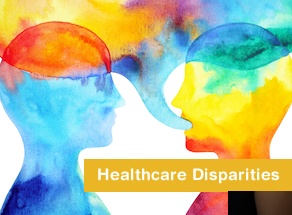Healthcare Policy
Can Black and Latino Doctors Solve the Primary-Healthcare Crisis?
09/10/2013 04:05pm | 11370 viewsWhile the Affordable Care Act will provide health-insurance coverage for 32 million previously uninsured individuals (most of them lower-income Blacks and Latinos), there’s a serious concern that there won’t be enough physicians to treat these patients. And will new physicians understand the needs of a previously uninsured, undertreated and less-health-aware population?
Healthcare Policy
Improving the Healthcare Experience for our Spanish Speaking Patients and Their Families
12/12/2013 08:55pm | 9549 viewsWhen I was 16 years old, my father was diagnosed with diabetes. Though I was too young to understand all of the medical terms and implications of such a diagnosis, I did know English which gave me an advantage he did not have. So I would go to the hospital with my dad, and the first thing I would look for was Spanish language signage, literature, nurses and other staff who spoke Spanish. Even though I am bilingual, I wanted to make sure that if I was not able to come to the hospital with my dad, he would be able to navigate the hospital system by himself.
Healthcare Policy
For Spanish-Speaking Hispanics, Entering the U.S. Healthcare System Can Be Like a Trip to a Foreign Country…or Outer Space
28/10/2013 05:32pm | 9606 viewsPicture yourself after a long flight to a Spanish-speaking country. You’re in the airport, tired and hungry, desperately needing to find a restroom before trying to make your way to the right luggage carousel and transportation. But all the signs you see are in Spanish and you don’t speak or read the language.
Healthcare Policy
Opinion: Leticia Van de Putte on Latino Health
23/09/2013 02:57pm | 8725 viewsDid you know that 38 percent of Latinos in Texas are uninsured, compared to only 13.5 percent of non-Hispanic whites? And of the 6.1 million uninsured Texans, more than half (3.3 million) are Hispanic?
The results of that can be seen in Latino health outcomes. We are much less likely to receive preventive care such as screenings for cancer, blood pressure, cholesterol, heart disease, sexually transmitted diseases, and diabetes. We are almost twice as likely to have diabetes than non-Hispanic whites.
Healthcare Policy
Group to start clinical trials in Edinburg, eyeing minority participation
08/10/2013 10:23pm | 8385 viewsA national organization dedicated to expanding minority participation in clinical trials will establish a research center in Edinburg to test out innovative new drugs and treatments.




